
Naiyer A. Rizvi, MD, discusses treatment approaches in non–small cell lung cancer.

Your AI-Trained Oncology Knowledge Connection!


Naiyer A. Rizvi, MD, discusses treatment approaches in non–small cell lung cancer.
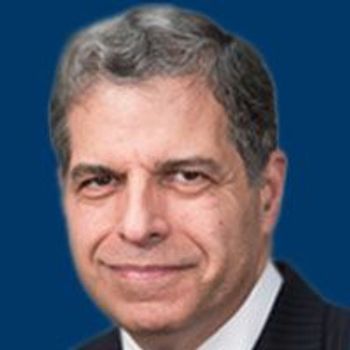
Gary K. Schwartz, MD, highlights research that is being done with regard to genomic signatures in sarcoma, challenges faced with immunotherapy, and where the field is headed.

Gary K. Schwartz, MD, discusses the results from the gastrointestinal stromal tumor cohort of the phase 2 Alliance A091401 trial.
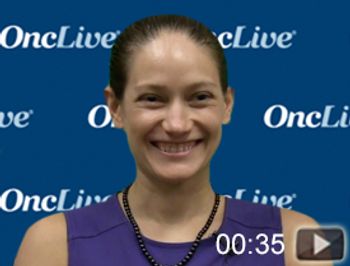
Melissa K. Accordino, MD, MS, discusses the utility of liquid biopsies in breast cancer.
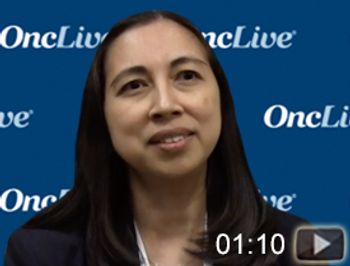
Katherine D. Crew, MD, MS, discusses recent advances made in HER2-positive breast cancer treatment.
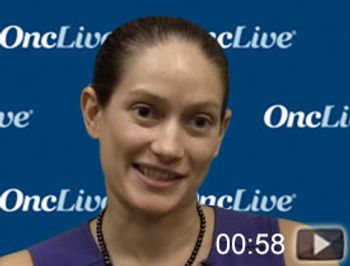
Melissa K. Accordino, MD, MS, discusses the findings of the PEARL trial in hormone receptor-positive, HER2-negative metastatic breast cancer.

Jason D. Wright, MD, discusses the findings of this trial and how practice can shift to decrease the gap between African-American and white patients with endometrial cancer.
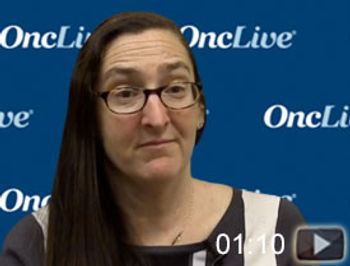
Dawn L. Hershman, MD, MS, discusses the design of the phase III TAILORx trial in hormone receptor (HR)–positive, HER2-negative breast cancer.
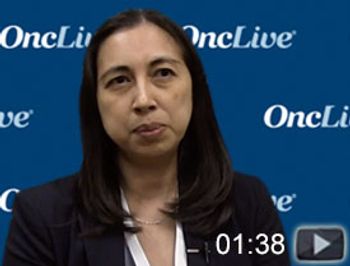
Katherine D. Crew, MD, MS, discusses the results of the APHINITY trial in HER2-positive breast cancer.
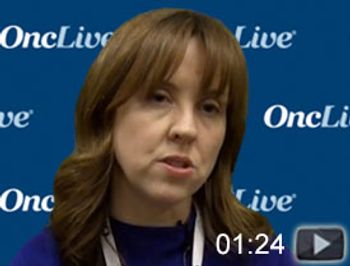
Eileen Connolly, MD, PhD, discusses the possible benefit of postmastectomy radiation for patients with breast cancer.

Katherine Crew, MD, MS, discusses treatment for patients with favorable-risk early-stage HER2-positive breast cancer.
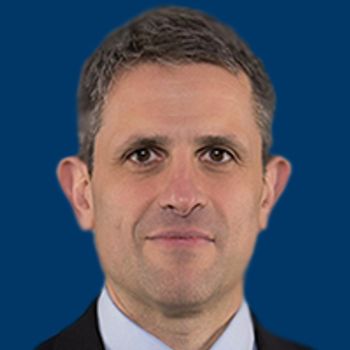
Faculty from NewYork-Presbyterian Hospital/Columbia University Irving Medical Center share their resolutions for the new year and the efforts being made to improve patient outcomes in practice.

Katherine D. Crew, MD, discusses the results of HER2CLIMB and DESTINY-Breast01, as well as other impactful data in HER2-positive breast cancer that emerged from the 2019 San Antonio Breast Cancer Symposium.
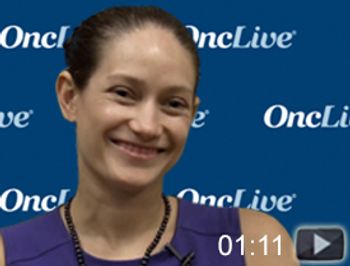
Melissa K. Accordino, MD, MS, discusses the utility of CDK4/6 inhibitors in hormone receptor–positive, HER2-negative breast cancer.

Eileen Connolly, MD, PhD, reflects on novel radiation techniques, as well as ongoing research and challenges with radiation therapy in breast cancer.

Katherine D. Crew, MD, discusses the updated results of the KATHERINE trial, as well as other data regarding the adjuvant treatment paradigm in early-stage HER2-positive breast cancer.
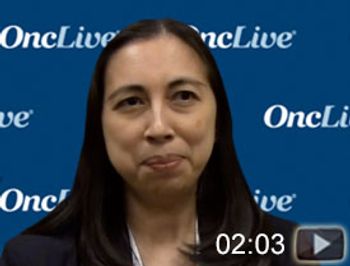
Katherine Crew, MD, MS, discusses new research in the advanced HER2-positive breast cancer landscape.

Melissa K. Accordino, MD, MS, discusses the treatment options for patients with hormone receptor-positive, HER2-negative breast cancer.

Dawn L. Hershman, MD, MS, discusses current treatment considerations in premenopausal women with early-stage, hormone receptor-positive breast cancer.
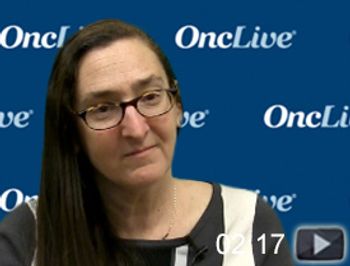
Dawn Hershman, MD, MS, professor of medicine and epidemiology, leader of the Breast Cancer Program of the Herbert Irving Comprehensive Cancer Center at Columbia University, discusses the use of endocrine therapy in premenopausal women with early-stage hormone receptor (HR)–positive, HER2-negative breast cancer.
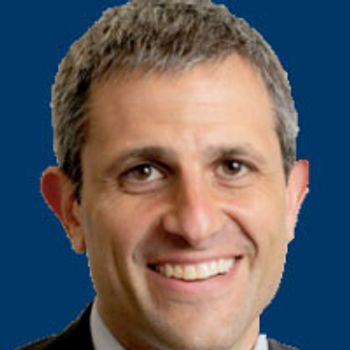
Kevin Kalinsky, MD, MS, highlights recent developments in triple-negative breast cancer, including the potential role of immunotherapy in the neoadjuvant setting.

OncLive interviewed experts at the State of the Science Summits™ in January 2020 on what they are going to work on improving in clinical practice this year.
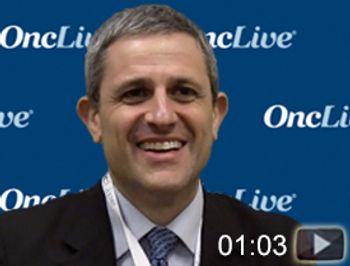
Kevin Kalinsky, MD, MS, discusses the clinical impact of the combination of atezolizumab and nab-paclitaxel in triple-negative breast cancer.
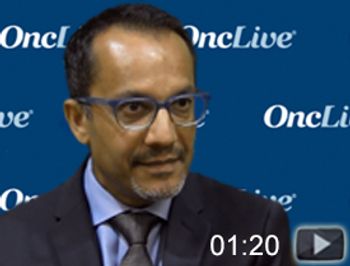
Gulam A. Manji, MD, PhD, discusses the importance of discovering other actionable targets for patients with colorectal cancer.
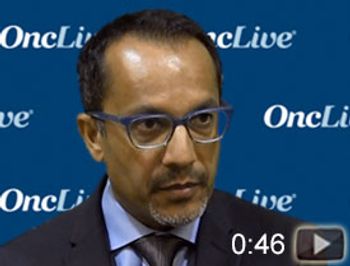
Gulam A. Manji, MD, PhD, discusses treatment for patients with colorectal cancer who harbor NTRK fusions.
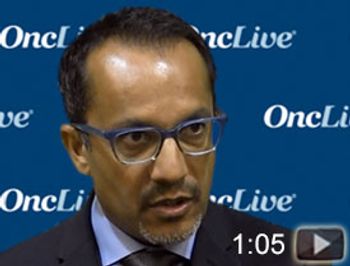
Gulam A. Manji, MD, PhD, discusses the difference between right- and left-sided tumors in colorectal cancer and the appropriate treatment for right-sided tumors based on a subgroup analysis.

Gulam A. Manji, MD, PhD, discusses clinical trials for patients with colorectal cancer harboring BRAF or other molecular abnormalities.

Gulam A. Manji, MD, PhD, discusses the role of finding biomarkers in patients with gastrointestinal cancers.

Kevin Kalinsky, MD, MS, highlights the recent data with alpelisib and CDK4/6 inhibitors, the toxicity differences between the 3 available CDK4/6 agents, and the next steps for both classes of agents.
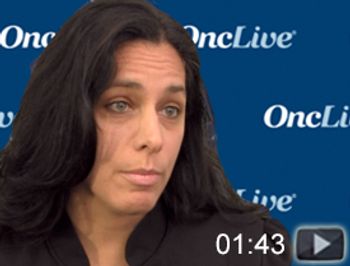
Nicole Lamanna, MD, associate professor of medicine, Hematologic Malignancies Section, Division of Hematology/Oncology, NewYork-Presbyterian/Columbia University Medical Center, discusses the MURANO trial in patients with chronic lymphocytic leukemia.